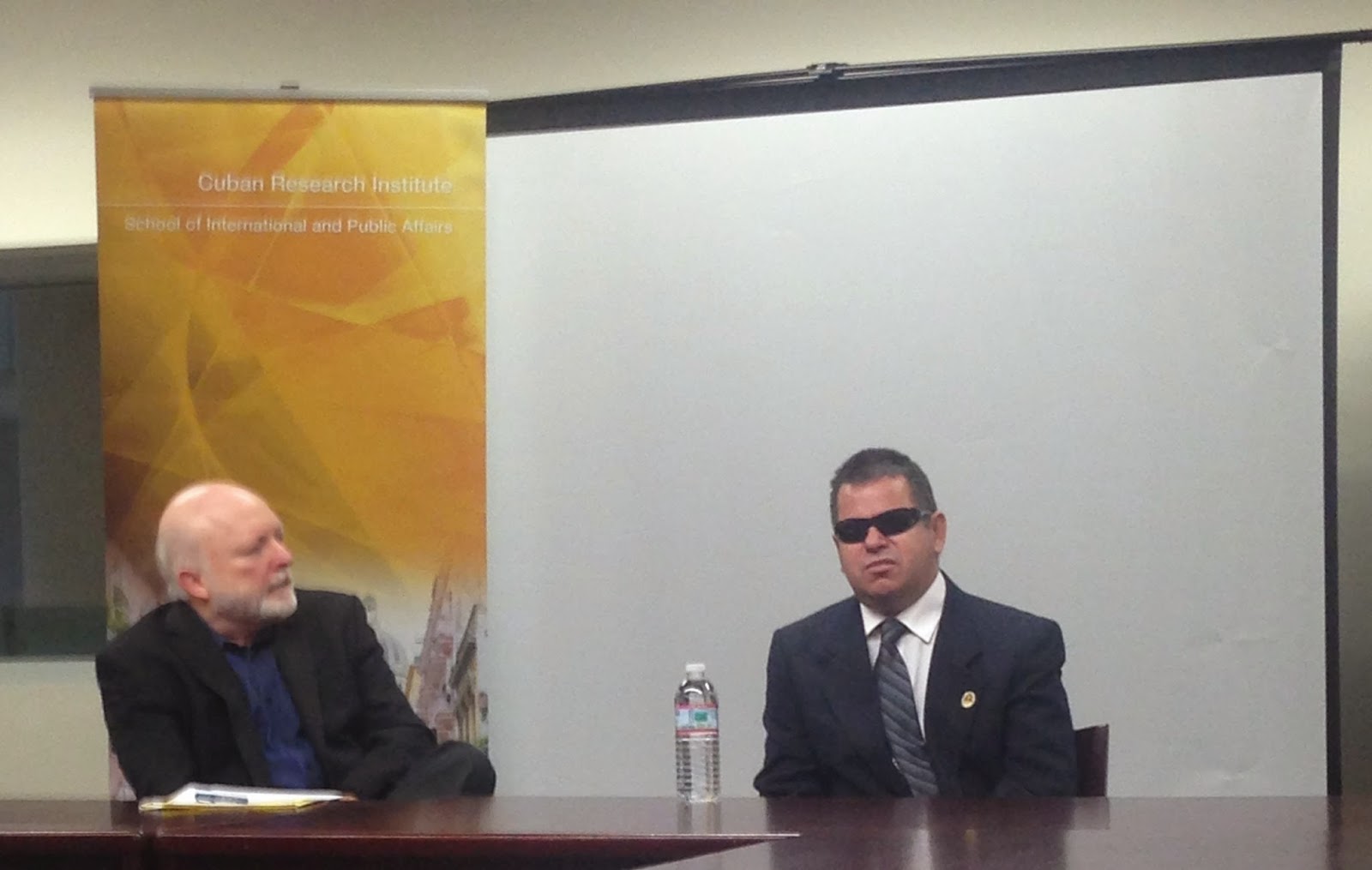The past two years have been turbulent ones for Congressman Joe Garcia
and his staff. An absentee ballot scandal in 2012 led his chief of
staff, long time friend and confidante Jeff Garcia to a ninety day
prison sentence as part of a plea agreement.
Other staffers were being
investigated by authorities and in order to avoid possible legal
entanglements have agreed through their attorneys to extend their statute of limitations. At the same time officials are reported to be looking into the role the 2010 Joe Garcia congressional campaign played in the placing of a tea party ringer candidate
into the race in order to divide up the Republican vote. Despite all of
this and Congressman Garcia hiring of a criminal defense attorney, David Markus, he claims to no longer be under investigation but news accounts say different. This is not the Florida 26th Congressional District's first rodeo, but when candidates get desperate in a heated campaign they do things sometimes that harm others and later come back to haunt them.
Joe Garcia did something on October 27, 2014 that no Cuban-American congressperson has ever done by placing a Cuban dissident in a paid political advertisement as an endorsement to advance his own candidacy. The campaign's press release was clear: "Today, the Joe Garcia for Congress campaign announced that ... Guillermo “El Coco” Fariñas, ... had declared his support for Representative Joe Garcia. Unfortunately, it also turns out to not to be true or as one blogger declared "bogus." Fariñas in a statement issued today stated:
Until October 27, 2014 no member of congress had engaged in using a dissident to advance their political campaigns in a paid political advertisement. This sets a terrible precedent that I hope is never repeated. If in the future candidates are dividing dissidents in Cuba over partisan races in the United States and relegating the cause of Cuban freedom to a talking point then historians will look back to the Joe Garcia for Congress and their actions on October 27, 2014 and say this is where it started, and it will be a great shame.
I will be voting for Carlos Curbelo in this election and recommend all fair minded people who are Democrats, Republicans, Independents, etc. to do the same and demonstrate that this course of action is a vote loser and hopefully stop this becoming a trend.
Joe Garcia did something on October 27, 2014 that no Cuban-American congressperson has ever done by placing a Cuban dissident in a paid political advertisement as an endorsement to advance his own candidacy. The campaign's press release was clear: "Today, the Joe Garcia for Congress campaign announced that ... Guillermo “El Coco” Fariñas, ... had declared his support for Representative Joe Garcia. Unfortunately, it also turns out to not to be true or as one blogger declared "bogus." Fariñas in a statement issued today stated:
"I, at no time of the advertisement in question appear asking for a vote for either of the two candidates in particular, therefore, it is clear that I am not meddling in said elections."Over twitter "El Coco" stated:
"The statements emitted about Joe García are a personal criteria and not a Political Campaign. The same opinion I would have said about his opponent."
At the same time another dissident, while supporting Fariñas's right to his opinion expressed grave concerns about Joe Garcia as:
Unlike other members of the Cuban-American congressional delegation Joe Garcia is the only one who has accepted campaign donations from avowed supporters of the Castro dictatorship. The FEC reports show [Francisco Aruca of Marazul] donated $5,000 to Garcia in 2012 and attorney Ira Kurzban, who legally represents Fidel Castro and his interests in the United States gave $3,700 to Garcia. There are others who on camera declare their support and sympathy for Fidel Castro and give thousands to Joe Garcia's campaign such as John Cabañas whose video appears at the top of the page."a person who is promoting what the people do not need to be free ... the policy promoted by Joe Garcia lamentably seeks closeness with the regime and not the opposition ... and that is what a great part of the Cuban people and opposition think."
Until October 27, 2014 no member of congress had engaged in using a dissident to advance their political campaigns in a paid political advertisement. This sets a terrible precedent that I hope is never repeated. If in the future candidates are dividing dissidents in Cuba over partisan races in the United States and relegating the cause of Cuban freedom to a talking point then historians will look back to the Joe Garcia for Congress and their actions on October 27, 2014 and say this is where it started, and it will be a great shame.
I will be voting for Carlos Curbelo in this election and recommend all fair minded people who are Democrats, Republicans, Independents, etc. to do the same and demonstrate that this course of action is a vote loser and hopefully stop this becoming a trend.
Ira
Kurzban, who legally represents the abuser himself, Fidel Castro, and
his interests in the United States and gave $3,700 in donations. - See
more at:
http://www.politicalcortadito.com/2014/07/29/what-hypocrite-joe-garcia-didnt-tell-cuban-dissident-he-met/#sthash.Ne7aUiKI.dpuf
Ira
Kurzban, who legally represents the abuser himself, Fidel Castro, and
his interests in the United States and gave $3,700 in donations. - See
more at:
http://www.politicalcortadito.com/2014/07/29/what-hypocrite-joe-garcia-didnt-tell-cuban-dissident-he-met/#sthash.Ne7aUiKI.dpufattorney Ira Kurzban, who legally represents the abuser himself, Fidel Castro, and his interests in the United States and gave $3,700 in donations.





















.JPG)




